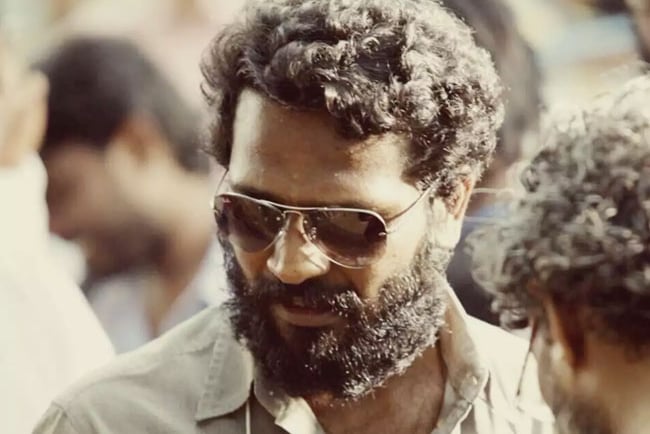Top 3 Movies of Vetrimaran
Based on Audience Ratings and Reviews
ENTERTAINMENT


3. VISARANAI
Visaranai marks a striking shift for Vetrimaaran, showcasing his ability to tell stories with patience and clarity. The narrative flows smoothly, featuring concise flashbacks that unfold at a natural pace, without any unnecessary embellishments. The only persistent sound in the background is the eerie combination of rain and crickets.
Given that the film is rooted in real and disturbing events, it feels more like it’s been “captured” rather than “shot.” Unlike Vetrimaaran’s usual style, there’s no dramatic bloodshed moment placed strategically in the film. It simply doesn’t require it. The story, which highlights police brutality—first against impoverished Tamil Nadu migrants in Andhra Pradesh and then against a white-collar auditor in Tamil Nadu—draws from M. Chandrakumar’s novel Lock Up and is filled with visceral intensity. The true centerpiece is a fleeting moment of quiet and hope that is quickly snatched away.
The film’s strength lies in its unflinching portrayal of violence, which never feels excessive. What sets it apart is how violence is depicted as a part of life—without theatrics or exaggeration. This rare restraint creates a sense of horror that’s distinct from anything else, whether from Vetrimaaran or other filmmakers.
2. ASURAN
Vada Chennai and Asuran are probably the most visually striking films from Vetrimaaran. They both feature that slow-motion payoff typical of masala films, fitting right in with Vetrimaaran's unique style. Each film places its intermission right after an exhilarating action scene that hits you hard emotionally and stylistically. However, while Vada Chennai rushes through its storytelling—thanks to its narrative choices and editing—Asuran takes a more profound approach.
The film opens with a shot of the moon peeking through milky clouds, but it quickly shifts when feet stomp on it. We realize we were looking at a reflection on calm water, now disturbed by the fleeing feet of Sivasaami (Dhanush) and his son Chidambaram (Ken Karunas). Chidambaram has just avenged his elder brother's murder, an act that sends their family into a fugitive life.
Asuran nails many of Vetrimaaran's goals—it's a mass film that avoids typical mass film tropes. There’s no grand hero entrance; instead, we get the intermission. There’s no casual romance; instead, we see trauma and love intertwined. Humor isn’t a separate character; it’s woven into the dialogue. The film lacks polish and beauty, with scenes transitioning in a jarring manner. Yet, Asuran delivers some of the most powerful moments of sorrow and redemptive violence. Vetrimaaran really knows how to hit you in the feels, not just visually. The second half reveals why Sivasaami is so calm, shaped by a violent past that left him orphaned and unloved. This mirroring of the two halves is another classic Vetrimaaran touch—from the slippers to the heroism to the tragic escape. It’s easy to label this film as formulaic, but there’s a reason these templates endure through changing genres and tastes. Just because it’s predictable doesn’t diminish the artistry behind it. Just because something is predictable doesn’t mean an artist can’t do amazing things with it. Asuran is Vetrimaaran’s most emotionally impactful film — it doesn’t drain you, but it leaves a mark. The violence sticks with you as a feeling of pain rather than just shock.
1. VADACHENNAI
Vada Chennai marks Vetrimaaran's return to North Chennai, the backdrop of his first film. This time around, the story dives deeper into themes of violence, history, and politics, creating a complex world filled with human flaws and missteps. The details are striking, like the scene where prisoners use lizard tails to get high. The violence is more systemic, focusing on the evolution of a neighborhood over time rather than just a group of friends, as seen in Visaranai.
Similar to Aadukalam, Vada Chennai kicks off with a violent scene that resurfaces in the final thirty minutes. However, unlike Aadukalam, this approach feels a bit mechanical since the intense action surrounding Anbu (played by Dhanush), a dedicated carrom player caught in a gang war, overshadows the film's beginning.
This film is captivating, weaving through different time periods with flashbacks within flashbacks. If you were to pause and ask what year it is, you might find yourself momentarily confused due to the story's complexity. Key historical events, like the deaths of M.G. Ramachandran and Rajiv Gandhi, serve as markers to navigate the plot. Originally, Vada Chennai was a whopping 5.5 hours long, and the abrupt scene transitions we notice are a result of heavy editing to trim it down to 2.5 hours. The relentless pace of action, context, dialogue, and exposition keeps you engaged, almost like being swept away in a fast-flowing river.
What really distinguishes Vada Chennai is Anbu's role as a conflicted hero, thrust into heroism by circumstance, grappling with the ambiguity of right and wrong. He shares this moral struggle with his wife in a poignant moment. It’s clear that if the story were told from a different angle, the moral judgments we’ve placed on the characters could easily shift. The film's ability to give its characters this kind of depth is a testament to its imaginative storytelling, both morally and literarily.
